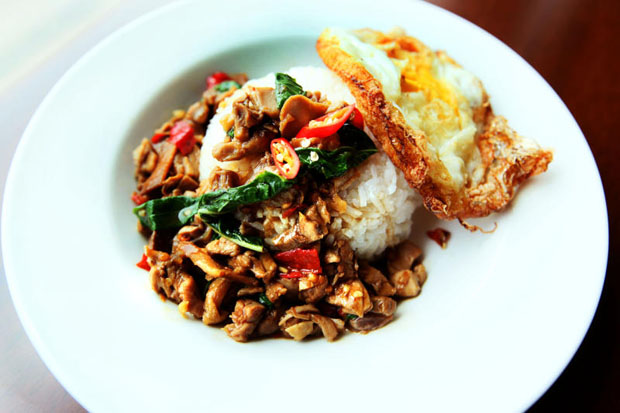
Fried chicken and holy basil with a fried egg is responsible for more greenhouse gases than any item served on Thai Airways International’s planes, but the dish will remain on the in-flight menu because it is passengers’ favourite dish, the airline says.
To combat climate change, THAI and the Thailand Greenhouse Gas Management Organisation studied carbon-dioxide emissions created by preparation of the national flag carrier's food.
They found that khao phad kaprao kai khai dao produced the highest amount of greenhouse gas: 1.32 kilogrammes of the gas per meal, THAI president Charamporn Jotikasthira said Monday.
The figure is based on the entire process of producing each dish, from the acquisition of raw materials and ingredients, to food preparation, delivery, and disposal of leftovers and packaging.
The spicy dish was one of the first five meals that THAI selected for its project to reduce greenhouse gas emissions throughout its production process.
The four others - listed in order of greenhouse gas generation - were green curry chicken and dried pork sausage over rice, Panaeng red curry chicken and fried Chinese kale over rice, spicy curry chicken and fried kale over rice, and Massaman curry chicken and fried peas over rice.
"Though contributing most to global warming, khao phad kaprao kai khai dao will not be excluded because it is a top hit, but the THAI catering department and concerned officials were ordered to find ways to minimise GHG emissions," Mr Charamporn said.
The five meals in the programme will be served on THAI flights with a carbon footprint label from April.
The THAI catering department produced about 50,000 dishes a day, or about 20 million a year, and production of each meal gave off a kilogramme of greenhouse gas on average, Mr Charamporn said.